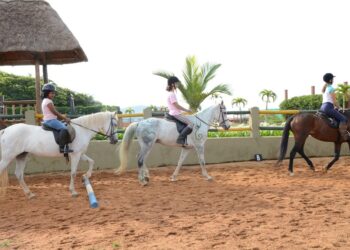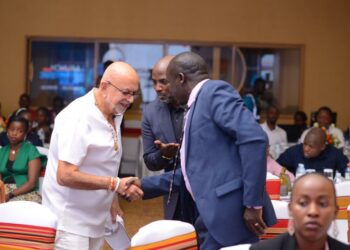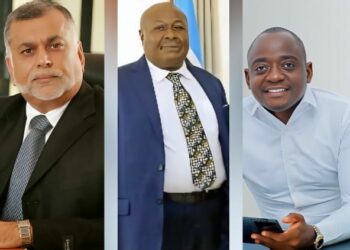By Andrew Karamagi
If Makerere University must continue advancing her stated objective of “building for the future,” the institution’s current Vice Chancellor must shed off the character traits of insecurity, low self-esteem and blind arrogance that define village chiefs who never expected to hold such offices and now that they find themselves in such a position, suddenly think that a university for instance, is their personal fiefdom over which they must rule and reign with unfettered power.
I cannot think of any other development stage that impacts upon the life of an individual like tertiary education: these years of unprecedented liberty present daily occurrences for self-discovery on the intellectual, social, cultural and even political planes.
In my own experience, I was awestruck at the kind of latitude I had in terms of doing what I wanted, managing the fairly abundant financial resources at my disposal because of my generous and multiple sources of ‘pocket money’, the diversity of friends from all backgrounds, the thrill of student guild politics, electioneering, spirited debates about everything and the daily realization of how little I knew about the world with every lecture that extended my intellectual horizons.
Lest I forget, I was in equal, if not more measure fascinated by the stunning, spectacular and dazzling looks of the girls who had magically transformed from wearing tepid school uniforms to well-tailored outfits that transfigured them into goddesses in human form. In the midst of a rush hour as the day gathered pace, I once stopped a young lady who was evidently rushing to a lecture, introduced myself and without hesitation, told her that after seeing her, I knew that the sun rises off her dainty feet each morning—her chocolatey cheeks turned bright red as she blushed and revealed a set of cute dimples. She managed to mumble something along the lines of “…let’s catch up sometime soon” and skittered away, leaving in her wake the soft alluring and hypnotic hint of Chanel or some high-end body splash. Unfortunately, I never saw her again after that encounter—in hindsight, I think she was a finalist who, in a few months, would be well on her way out of school and into the real world.
But I digress.
My point here is that the university experience is a critical, formative and memorable touchstone for those who are fortunate enough to have that opportunity. Its benefits cannot be gainsaid.
The word ‘university’ has been severally defined but the simple and unassuming phrase that explains the term to mean “a market place of ideas” is one that I have always found apt and will stick to for the purposes of this article. It is a terrain of the clash of ideas to generate new ideas. It is not a profit-making machine to package products in fancy certificates to make them marketable.
At the risk of redundancy, I must state the obvious by noting that the word ‘university’ denotes universality. Its root word is ‘universe’. The etymology of the word presupposes plurality, not unanimity of thought.
The history of the establishment of universities, as the MUASA Chairman Deus Muhwezi, Ph.D., eloquently reminded us recently, is steeped in the rejection of the rigidities of dogma and the vagaries of tyranny. These institutions are as much physical edifices against raw power, brute force and empire in whatever shape or form as they are embodiments and stewards of intellectual rigour, endeavour and pursuit. Thanks to centuries of upholding these ideals, we can look back and say gone are the days when Galileo Galilee who dared to advance heliocentrism (the theory that the sun is at the centre of the solar system about which all planets and celestial bodies revolve) whereas the infallible Church argued otherwise, earning him a conviction for heresy and was consequently kept under house arrest until his death in 1642.
In the circumstances, Prof Barnabas Nawangwe is misplaced given his default response to student activism, dissenting opinions by members of different faculty which has invariably been to summarily and indefinitely suspend students, write threatening letters to staff or institute kangaroo disciplinary proceedings against perceived miscreants.
That great institution should not be reduced into an insular hamlet lorded over by a man who is obsessed with power and, like a drunkard who uses streetlight lamp posts for support—rather than for illumination—misuses the powers of his office to support his insecurities and obsessions.
Those close to Prof Nawangwe should draw his attention to the remarkable exploits that other African luminaries like Professors Samir Amin, Issa Shivji, Nobel Prize Laureate Wole Soyinka and younger ones like Joe Oloka-Onyango, Josephine Ahikire, Frederick Jjuuko, Sylvia Tamale and the recently deceased innovator, Dr Moses Musaazi, have executed in the service of humanity and their respective disciplines of study.
He should also be reminded that people in positions of authority ought to develop a thick skin, be more tolerant of criticism, dissent and exercise restraint when dealing with the kind of youthful energy that many a university student naturally possess. Every student deserves their fair share of a fulfilling learning and sharing experience. Society progresses on the wheels of contestation and debate, not repression and silence.
In my freshman year, I had very radical and absolute views on economics, politics and culture but my professors deftly chiseled away at the irregular mould of extremist fervor that characterized my views by showing me that there was a lot more to the world than I thought I knew. They didn’t expel me from their classes or sanction disciplinary measures against me or those of my ilk. It is not unheard of for American Universities, for example, to host debates featuring people like the former President of Iran, Mahmood Ahmadinejad, whose views about Western Culture are considered anathema by millions of Americans.
Matter of fact, several past and present leaders of the Great
Lakes Region and beyond honed their leadership skills, oratory and owe their exposure to the rest of the world at our country’s premier public institution of higher learning. Prof Nawangwe should not be allowed to extinguish this flame that has been glowing brightly under the successive leadership of the ten individuals who have assumed that Office before him.
At a time when MV Uganda is being buffeted by the choppy waters and vicious gales of family rule, dictatorship and criminal oligarchy, one would expect that our community of scholars, led by Nawangwe et al, would provide leadership, speak up and act against the misrule of our society. That would be a more constructive use of energy as opposed to harassing students and staff for their views.
The only place where there is unanimity of opinion is a cemetery.
Do you have a story in your community or an opinion to share with us: Email us at editorial@watchdoguganda.com












